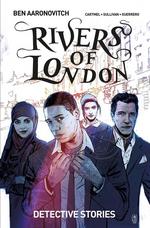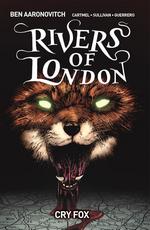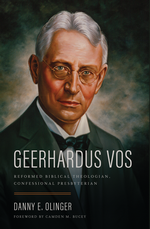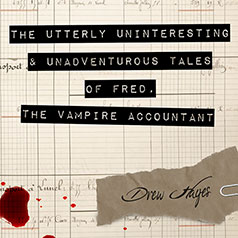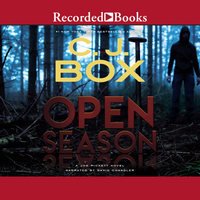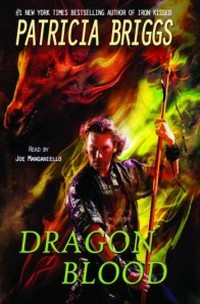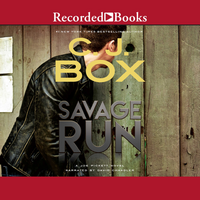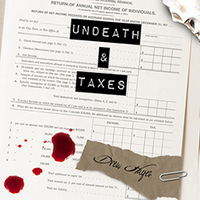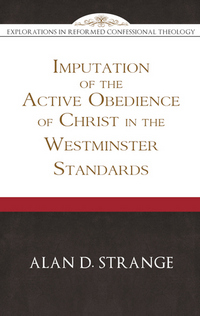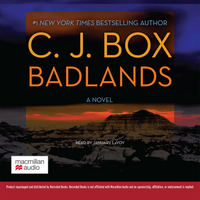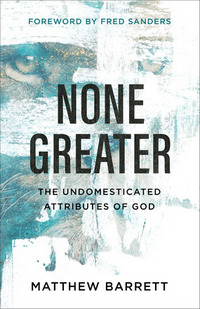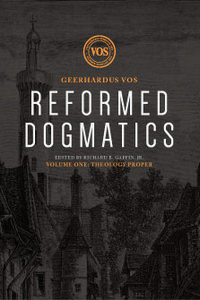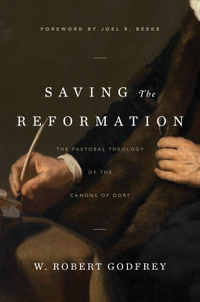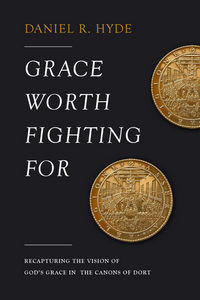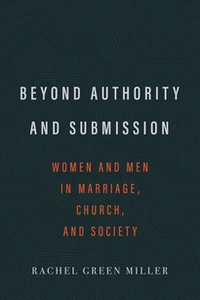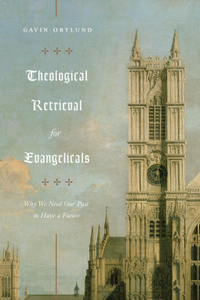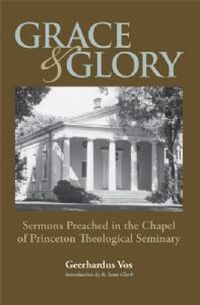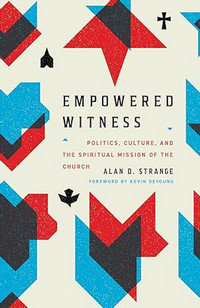 Empowered Witness:
Empowered Witness:
Politics, Culture, and the
Spiritual Mission of the Church
DETAILS: Publisher: Crossway Publication Date: February 13, 2024 Format: Paperback Length: 127 pg. Read Date: February 11-18, 2024

The church is not presented in the Bible as simply another voice in the competing cacophony of shouted slogans but rather that still small voice that testifies to what God has done for us in Christ, that he so loved the world that he gave Christ to die for it, so that all who believe in him should not perish but have everlasting life (John 3:16). This is the message of the church, and to reduce it to a mere political agenda is to sell short the glory of the gospel. The Christian faith is not, at its heart, a political message but a spiritual one. A doctrine of the spirituality of the church, properly conceived, holds fast to this thrust and permits the church to maintain fidelity to the Christian message while keeping in check any address that it might consider necessary respecting matters in the civil and political sphere.
What’s Empowered Witness About?
This is one of those books where if I’m not careful I’m going to end up restating and interacting with the entire argument of the book. So we’re going to be careful…
The Publisher’s site says:
Rediscovering the Spirituality of the Church in Our Highly Politicized Age
The goal of the church should be simple—share the gospel to the ends of the earth. But in our highly politicized age, Christians can tend to place earthly political and social agendas over God’s spiritual mission of the church.
In Empowered Witness, author Alan D. Strange examines the doctrine of the spirituality of the church, making a clear distinction between the functions of the church and other institutions. Strange argues that if the church continues to push political agendas, no institution will be focused solely on the Great Commission and the gospel will be lost entirely. This book calls readers to become aware of the church’s power and limits and shed light on moral issues in a way that doesn’t alter the deeply spiritual and gospel-centered mission of the church.
The Doctrine Under Consideration
This quotation from Charles Hodge offers a good (yet partial) definition:
It is the doctrine of the Scriptures and of the Presbyterian Church, that the kingdom of Christ is not of this world; that it is not subject as to faith, worship, or discipline, to the authority of the state; and that it has no right to interfere with the state, or give ecclesiastical judgment in matters pertaining to state policy.
The Spirituality of the Church focuses on the Church’s Spiritual Mission—to proclaim the gospel and help change the lives of believers—and calls the church to remember that’s her mission and to keep her from becoming entangled with or too immersed in the concerns of this world, with the power/goals of the State, and so on.
This doesn’t mean that the Church cannot—ought not—speak to the culture or State as it regards morality or spiritual issues, but it ought not get into the details of the political realities or functions.
The Structure of the Book
Let me just show you the Table of Contents first,
Chapter 1: The Doctrine of the Spirituality of the Church
Chapter 2: Slavery and the Spirituality of the Church
Chapter 3: The Spirituality of the Church Preceding the US Civil War
Chapter 4: The Spirituality of the Church and the General Assemblies of 1862–1865
Chapter 5: The Southern Church and the Reunion of the Northern Church
Chapter 6: The Spirituality of the Church and Politics Today
As you can see, the bulk of the book focuses on the middle of the Nineteenth Century and the Church (primarily the Presbyterian Church in the US)—and Charles Hodge was one of the leading voices and thinkers of the time. The book uses Hodge (and others to lesser extents) as a case study to see how this doctrine can be applied. Strange calls the story of the Presbyterian Church of the 1800s a “great cautionary tale”—you will not see a lot of hero-worship here. The Church didn’t live up to her calling, but we today can learn from their failings.
Strikingly, many of those who differed with and opposed Hodge (or that he differed with and opposed) held to the same doctrine. One of the strengths of Chapters 2-5 is that we see that this isn’t a “magic bullet” ensuring unity amongst believers that we can use to get the world/governments to do the things we want.
So, what did I think about Empowered Witness?
Every decision that the church as church takes needs to be justified in the light of the spirituality of the church, answering positively a question like “Does this advance the true spiritual task/calling/mission of the church?” Endorsing a political candidate and taking a position on a tax bill arguably does not pertain to or advance the cause of the gospel…
Saying this, though, does not remove the difficulty of defining what is spiritual vis-a-vis what is more purely political. One mans “purely political” may be another man’s “civil consequences of a proper spirituality.” Nothing will save us from the debate over whether a matter pertains to the proper spirituality of the church or falls under the more purely political items that should not concern the church. And there are those on both left and right, particularly hard-liners, who see everything as political, so that all political issues are moral and all moral issues are purely political.
This is not the book I expected from the description or even the title. This is both a complaint and a reaction. However, the book’s concept is probably a better idea than what I expected.
So rather than a purely theoretical or scholarly presentation and analysis of The Spirituality of the Church, or one looking at how to address contemporary issues, controversies, and discussions from that point of view—we get a look at how historical figures dealt with it. This allows the reader to see examples of the application of the doctrine to the real world (avoiding the problems of the first strategy) or distracting readers who may differ from the author when it comes to contemporary issues (avoiding problems of the second strategy). So by focusing on historical figures approaching a topic that most readers are familiar with, and are (likely?) largely settled about the events and how things played out, we can see how the various figures applied the doctrine without getting too worked up or distracted.
This also allows Strange to be critical of every figure he talked about when necessary—historical distance can be helpful.
I’ve seen a some mild criticism of Strange’s descriptions of the positions of James Thornwell and Stuart Robinson in distinction from Hodge—but they were mild (and the person who made those criticisms was largely positive toward the book otherwise). And I imagine there are some who’d want to pick a little on his depiction of Hodge and his position, too. But no one is going to challenge Strange’s grasp on the overall discussions and positions—this is an area he’s devoted years to and it shows.
Nor does this book try to answer every question, address every angle or objection—it’s the beginning of a consideration, an invitation to a conversation—one that each reader should have with those around them.
I ended up relishing the experience of reading this book and gleaned so much from it—and I really want to read the dissertation this was based on now (a healthy TBR stack is all that’s preventing me from jumping on it now). Chapter 1, “The Doctrine of the Spirituality of the Church” (with the introduction) and Chapter 6, “The Spirituality of the Church and Politics Today” serve as good bookends, ensuring that this isn’t just a historical discussion, but one that’s vital to readers and believers today—without being so expansive or long that Strange will put off readers who differ from him.
The more I think about this book, the more I like it. I’ve spent more time talking about it with others than I do most books—and have ended up chewing on it more after those conversations—the more time you spend with Strange, Hodge, and those events/ideas under consideration, the greater your appreciation is likely to be. Empowered Witness is an easy (enough) read, but deals with thought-provoking topics in a thoughtful way, so you’re not going to race through this. You’re going to walk away from this impressed with the Nineteenth Century figures (even if you were already appreciative with them) and wondering where you can read more people like them. Strange has done us a service with this book, and hopefully, it bears good fruit.

This post contains an affiliate link. If you purchase from it, I will get a small commission at no additional cost to you. As always, the opinions expressed are my own.
![]()



